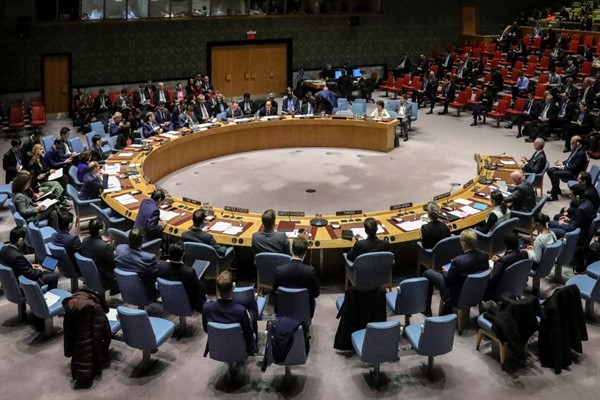With support from nearly half the world’s nations, a new United Nations treaty banning the possession and use of nuclear weapons will take effect early next year. The U.N. confirmed last month that the Treaty on the Prohibition of Nuclear Weapons, or TPNW, had been ratified by the required 50 countries. Secretary-General Antonio Guterres called it “a tribute to the survivors of nuclear explosions and tests, many of whom advocated for this treaty.”
Many non-nuclear-armed states, as well as pro-disarmament activists and organizations like the Nobel Peace Prize-winning International Campaign to Abolish Nuclear Weapons, have celebrated the agreement, which they see as a milestone in global efforts to prevent nuclear war. However, it has drawn strong opposition from nuclear-armed states, especially the five permanent members of the U.N. Security Council: Russia, China, France, the United Kingdom and the United States. The Trump administration has called on the treaty’s 84 signatories to back out of it. Its entry into force on Jan. 22, 2021, will pose a thorny diplomatic challenge for the incoming Biden administration.
Many nonproliferation experts question whether the TPNW will achieve its lofty goals. None of the world’s nuclear-armed states have signed on to the agreement, and there is little sign they will do so. Moreover, they fear the pact will further undermine the longstanding Nuclear Nonproliferation Treaty, known as the NPT, which includes many similar aspirations. Caught in the middle are some of America’s NATO allies, which shelter under the U.S. nuclear security umbrella. No member of the trans-Atlantic alliance has signed the TPNW yet, but many of them have considerable domestic political constituencies that support nuclear disarmament.

